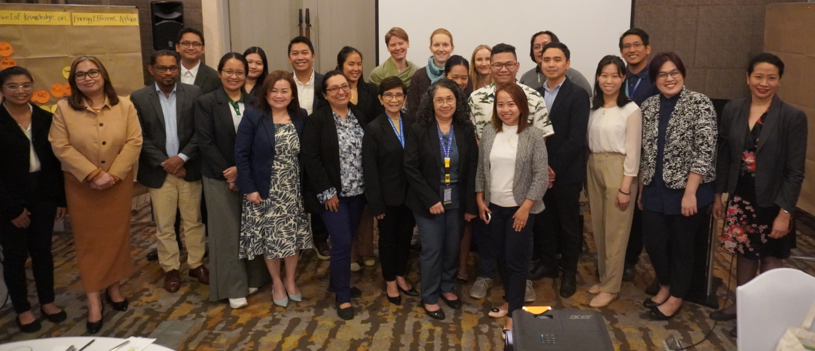A training workshop in the Philippines offered the opportunity to find solustions to create more incentives for consumers to invest in energy efficient and climate-friendly appliances. Like this the cooling sector in the country should be able to fulfil its crimate targets.
The 30 by 30 Zero project implemented by the International Finance Corporation (IFC) and Cool Contributions fighting Climate Change II (C4 II) implemented by Deutsche Gesellschaft für Internationale Zusammenarbeit (GIZ) collaborated on “From Zero Interest to Net Zero: Training Workshop on Mobilizing Retail Banking to Promote Energy Efficient Appliances in the Philippines” which specifically targeted retail banks to develop creative solutions in promoting energy efficient appliances to their clients by knowing its Life Cycle Cost (LCC) and the Total Equivalent Warming Impact (TEWI) for cooling appliances.
Block 2
Energy efficiency is a low hanging fruit for climate action and was included as the top priority of the energy sector in the Nationally Determined Contributions (NDC) of the Philippines. Cooling remains a challenge for the Philippines. The Philippine energy sector has set a climate action target for residential energy efficiency at 248.21 MT CO2E through energy savings, but there is a challenge to provide incentives for consumers to buy the most efficient units in the market given the perception of a high upfront cost.
Retail banking products can increase consumers' interest
A creative solution to reach residential users is through retail banking products that can highlight climate action impacts for consumer purchases and other credit products. Currently, financing household appliances through credit card purchases with zero interest is commonly available in the Philippine market. The challenge is to make zero interest promotions climate-friendly by highlighting indirect emissions (Scope 2) from energy consumption of appliances and considering the direct emissions of cooling appliances (Scope 1) and providing incentives thereof.
Block 4
As a result of the training, banks can integrate the basic calculation of climate impacts in their retail products and provide creative solutions for consumers to choose the most climate-friendly appliance available in the market considering both direct emissions and indirect emissions.

